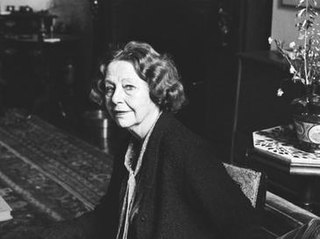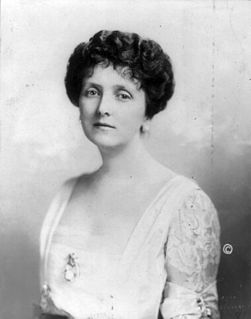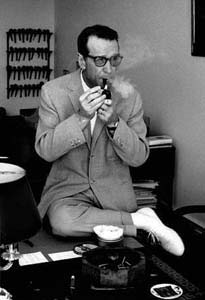A Quote by Elizabeth Hardwick
Many people believe letters the most personal and revealing form of communication. In them, we expect to find the charmer at his nap, slumped, open-mouthed, profoundly himself without thought for appearances. Yet, this is not quite true. Letters are above all useful as a means of expressing the ideal self; and no other method of communication is quite so good for this purpose. In conversation, those uneasy eyes upon you, those lips ready with an emendation before you have begun to speak, are a powerful deterrent to unreality, even to hope.
Quote Topics
Above
Appearances
Before
Begun
Believe
Communication
Conversation
Deterrent
Even
Expect
Expressing
Eyes
Find
Form
Good
Himself
His
Hope
Ideal
Letters
Lips
Many
Means
Method
Most
Nap
Open
Other
People
Personal
Powerful
Profoundly
Purpose
Quite
Ready
Revealing
Self
Speak
Them
Those
Thought
True
Uneasy
Unreality
Useful
Without
Related Quotes
Most open letters undoubtedly come from a good place, rising out of genuine outrage or concern or care. There is, admittedly, also a smugness to most open letters: a sense that we, as the writers of such letters, know better than those to whom the letters are addressed. We will impart our opinions to you, with or without your consent.
I've read some of Kurt Vonnegut letters from when he was young. He was a prisoner of war, and even when he was in his early twenties, there were things mentioned that showed up in his novels. One of the sweetest things in those letters was him wanting to be a writer but doubting himself, not having confidence in himself.
For those of you who still believe in the Easter Bunny and that the letters that appear in your local newspaper come from concerned citizens who really care, I've got troubling news. At least in politics, most of the letters that get published on the letters-to-the-editor page originate in the campaign headquarters of the candidates.
Power is required for communication. To stand before an indifferent or hostile group and have one's say, or to speak honestly to a friend truths that go deep and hurt these require self-affirmation, self-assertion, and even at times aggression. ... My experience in psychotherapy convinces me that the act which requires the most courage is the simple communication, unpropelled by rage or anger, of one's deepest thoughts to another.
closed my eyes and listened. It was like music I'd heard all my life, even more than "This Lullaby." All those keystrokes, all those letters, so many words. I brushed my fingers over the beads and watched as her image rippled, like it was on water, breaking apart gently and shimmering before becoming whole again.
Samuel Beckett is the person that I read the most of - certainly the person whose books I own the most of. Probably 800 or 900, maybe 1,000 books of just Samuel Beckett. By him, about him, in different languages, etc. etc. Notebooks of his, letters of his that I own, personal letters - not to me, but I bought a bunch of correspondence of his. I love his humor, and I'm always blown away by his syntax and his ideas. So I keep reading those.
The glance is natural magic. The mysterious communication established across a house between two entire strangers, moves all the springs of wonder. The communication by the glance is in the greatest part not subject to the control of the will. It is the bodily symbol of identity with nature. We look into the eyes to know if this other form is another self, and the eyes will not lie, but make a faithful confession what inhabitant is there.
COMMUNICATION: If I had to pick a first rule of communication-the one practice above all others that opens the door to connecting with others-it would be to look for common ground. Too often people see communication as the process of transmitting massive amounts of information to other people. But that's the wrong picture. Communication is a journey. The more that people have in common, the better the chance that they can take that journey together.
A lot of the letters that are coming in - a lot of them are queries or comments - are one sentence long... These are from Twitter. And if you look at the nature of those one sentence letters, most of the time it's something that came to somebody's mind - somebody walking down the street had a thought and sent it out. If they thought about it for two minutes they would not have sent it.




































